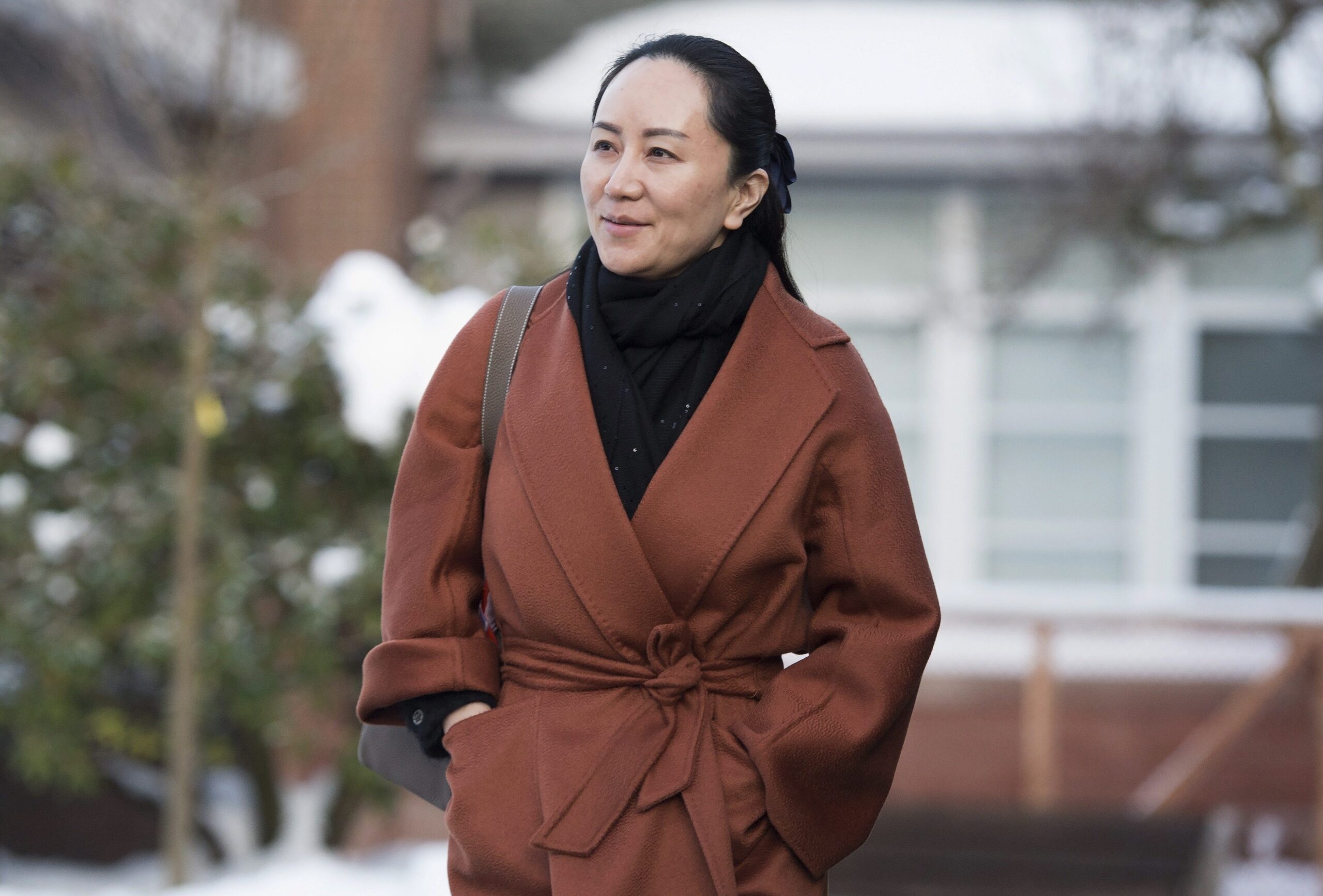
VANCOUVER — The first stage of an extradition hearing for a senior executive of Chinese tech giant Huawei started in a Vancouver courtroom M onday, a case that has infuriated Beijing, caused a diplomatic uproar between China and Canada and complicated high-stakes trade talks between China and the United States.
Canada’s arrest of chief financial officer Meng Wanzhou, the daughter of Huawei’s legendary founder, in late 2018 at America’s request enraged Beijing to the point it detained two Canadians in apparent retaliation.
Huawei represents China’s progress in becoming a technological power and has been a subject of U.S. security concerns for years. Beijing views Meng’s case as an attempt to contain China’s rise.
“Our government has been clear. We are a rule of law country and we honour our extradition treaty commitments,” Canadian Deputy Prime Minister Chrystia Freeland said at a cabinet retreat in Manitoba. “It is what we need to do and what we will do.”
China’s foreign ministry complained Monday the United States and Canada were violating Meng’s rights and called for her release.
“It is completely a serious political incident,” said a ministry spokesman, Geng Shuang. He urged Canada to “correct mistakes with concrete actions, release Ms. Meng Wanzhou and let her return safely as soon as possible.”
Washington accuses Huawei of using a Hong Kong shell company to sell equipment to Iran in violation of U.S. sanctions. It says Meng, 47, committed fraud by misleading the HSBC bank about the company’s business dealings in Iran.
Meng, who is free on bail and living in one of the two Vancouver mansions she owns, sat next to her lawyers wearing a black dress with white polka dots. She earlier waved at reporters as she arrived at court.
Meng denies the allegations. Her defence team says comments by President Donald Trump suggest the case against her is politically motivated.
“We trust in Canada’s judicial system, which will prove Ms. Meng’s innocence,” Huawei said in a statement as the proceedings began.
Meng was detained in December 2018 in Vancouver as she was changing flights — on the same day that Trump and Chinese President Xi Jinping met for trade talks.
Prosecutors have stressed that Meng’s case is separate from the wider China-U.S. trade dispute, but Trump undercut that message weeks after her arrest when he said he would consider intervening in the case if it would help forge a trade deal with Beijing.
China and the U.S. reached a “Phase 1” trade agreement last week, but most analysts say any meaningful resolution of the main U.S. allegation — that Beijing uses predatory tactics in its drive to supplant America’s technological supremacy — could require years of contentious talks. Trump had raised the possibility of using Huawei’s fate as a bargaining chip in the trade talks, but the deal announced Wednesday didn’t mention the company.
Huawei is the biggest global supplier of network gear for cellphone and internet companies. Washington is pressuring other countries to limit use of its technology, warning they could be opening themselves up to surveillance and theft.
James Lewis at the Washington-based Center for Strategic and International Studies said the U.S. wanted to send a message with Meng’s arrest. There is good evidence that Huawei wilfully violated sanctions, he said.
“The message that you are no longer invulnerable has been sent to Chinese executives,” Lewis said. “No one has held China accountable. They steal technology, they violate their WTO commitments and the old line is, ‘Oh, they are a developing economy, who cares.’ When you are the second-largest economy in the world you can’t do that anymore.”
The initial stage of Meng’s extradition hearing will focus on whether Meng’s alleged crimes are crimes both in the United States and Canada. Her lawyers filed a a motion Friday arguing that Meng’s case is really about U.S. sanctions against Iran, not a fraud case. Canada does not have similar sanctions on Iran.
“This extradition has every appearance of the United States seeking to enlist Canada to enforce the very sanctions we have repudiated,” Meng’s lawyer Richard Peck said in court.
The second phase, scheduled for June, will consider defence allegations that Canada Border Services, the Royal Canadian Mounted Police and the FBI violated her rights while collecting evidence before she was actually arrested.
The extradition case could take years to resolve if there are appeals. Nearly 90 per cent of those arrested in Canada on extradition requests from the U.S. were surrendered to U.S. authorities between 2008 and 2018.
In apparent retaliation for Meng’s arrest, China detained former Canadian diplomat Michael Kovrig and Canadian entrepreneur Michael Spavor. The two men have been denied access to lawyers and family and are being held in prison cells where the lights are kept on 24-hours-a-day.
China has also placed restrictions on various Canadian exports to China, including canola oil seed and meat. Last January, China also handed a death sentence to a convicted Canadian drug smuggler in a sudden retrial.
“That’s mafia-style pressure,” Lewis said.
___
Gillies reported from Toronto
Jim Morris And Rob Gillies, The Associated Press
The post Huawei exec extradition hearing begins in Canada appeared first on Canadian Business – Your Source For Business News.

